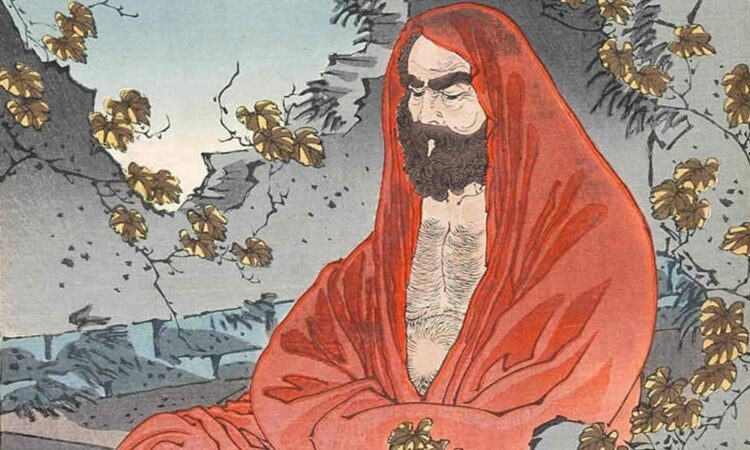New Delhi [India] : Bodhidharma, a revered Buddhist monk who lived during 5th or 6th century is credited for transmitting Chan Buddhism (the Chinese school of Mahayana Buddhism) in China. The word Chan originates from the Sanskrit word ‘Dhyana’ which means ‘mental absorption’ or meditation, Indo-Buddhist Heritage (IBH) Forum reported.
The teaching of this “great saint from Indian soil transformed the life and culture of people” in China, Japan and many other South East Asian nations.
The word was later conveyed to Vietnam as Thien, Korea as Seon and Zen Buddhism in Japan. Bodhidharma, also known as Putidamo in China and Daruma in Japan, was the second Indian Buddhist monk to visit Southern China, as per the IBH Forum report.
Phuntsog Dolma in the IBH Forum report said that Bodhidharma became the 28th patriarch of Mahayana Buddhism in India and the first patriarch of Chan Buddhism in China.
Bodhidharma was said to be the third son of Pallava king Simhavarman II of the ancient Pallava dynasty of South India. The Pallava kingdom comprised the current states of Tamil Nadu, Karnataka and Telangana. At that time, South India was the birthplace of great Buddhist panditas such as Acharya Nagarjuna and a “cradle of Mahayana Buddhism,” as per the IBH Forum report.
After his father’s death, Bodhidharma made the decision to give up his princely life. As a child, he was a bright student and had learned the Dharma from Prajnatara, a Buddhist master from Magadha. Recognising his student’s spiritual ability, Prajnatara trained him in ‘Instantaneous Entrance to the Way’ as per the Mahayana Tradition and attained Bodhi.
Bodhidharma travelled to China after his master Prajnatara’s advice. After arriving in China, he met Emperor Wu-ti, a devout Buddhist of the Liang dynasty. The meeting between Bodhidharma and Wu-ti is recorded in the Blue Cliff Record, a collection of Buddhist koans compiled in 1125.
During the meeting, Emperor Wu-ti asked, “I have constructed many temples for Buddhists and used to serve for transcribing a number of Buddhism sutras. What karmic merit is promised?” In response, Bodhidharma said, “No merit.” After his confrontation with Emperor Wu-ti, Bodhidharma went north to live in a cave at the Shaolin monastery located on Songshan on Mount Sung near Lo-yang.
According to the report, he sat in meditation for nine years and even met his first disciple Huike. Huike further carried out the lineage of Chan tradition in China and is believed to have established the Chinese martial arts of the Shaolin School.
In a conference paper titled ‘Contribution of Tamils to the Composite Culture of Asia’, it is written that Bodhidharma during his stay at Shaolin monastery “taught the monks the fighting art of India, which today is known as Kalaripayat and which in those days, was known as Vermanie.” These ancient martial art forms also included medicinal aspects.
As a prince, Bodhidharma would have learned traditional arts which he further taught his Chinese students. He taught his students martial arts, breathing techniques related to the Pranayama and other techniques of Yoga. He taught martial arts to students to prepare them to defend themselves against robbers, thieves and animals as they preached Buddhism while travelling from place to place.
Bodhidharma rejected devotional rituals, doctrinal debates, and verbal formalizations and supported meditation, through which people are able to grasp the Buddha nature within. He was said to have introduced the Lankavatara Sutra to Chinese Buddhism.
Bodhidharma was highly revered by the monks and people of China even made visits to the cave to pay their respects to him. As per the report, eight major temples are dedicated to Daruma in Japan. Furthermore, his statue is enshrined in almost every Japanese Zen temple along with a statue of Buddha. (ANI)














Comments